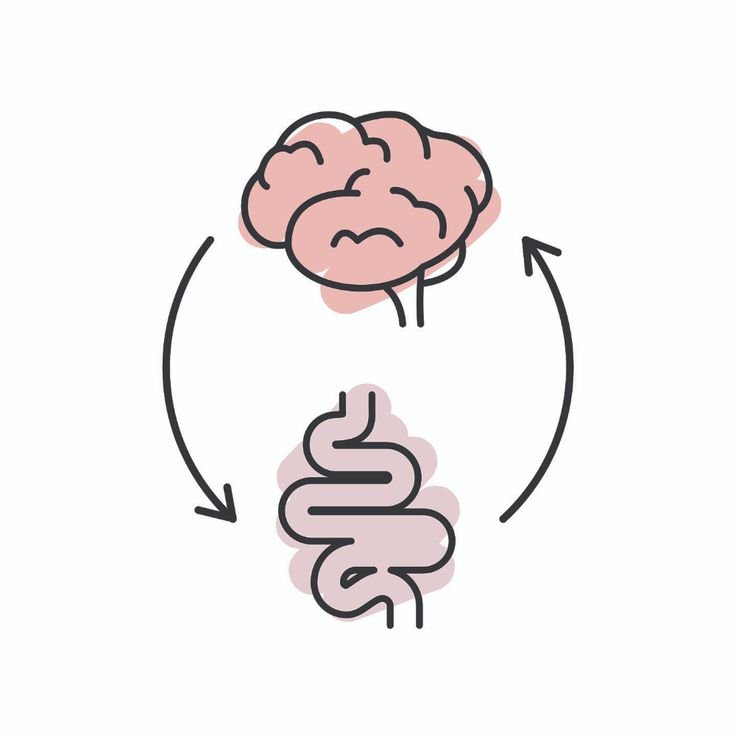Dr Michael Hunter on the Mind-Gut Connection
We are thrilled to collaborate with Dr. Michael Hunter, a retired gastroenterologist and internal medicine specialist with over 15 years of experience in academic medicine. Having served as the Head of a Medical Unit and Head of Gastroenterology at Helen Joseph Hospital in Johannesburg, South Africa, Dr. Hunter brings a wealth of expertise to the topic of gut health. Now a freelance medical writer and blogger, he joins us to explore the profound connection between gut health and mental well-being, offering practical tips to help maintain a balanced gut.
The Gut-Brain Axis: A Link to the Mind
Gut health affects far more than just the stomach. According to Dr. Hunter, the gut plays a pivotal role in influencing our mental health, immunity, and overall well-being. "The gut-brain axis connects gut health to mood and cognitive function," he says. Imbalances in the gut microbiome can directly impact our mental state, leading to issues like anxiety and depression. "Maintaining a healthy gut isn't just about digestion," Dr. Hunter emphasises, "it's about supporting our emotional and mental well-being as well."
This gut-brain connection is a fascinating and crucial aspect of our health. It highlights the importance of nurturing our gut microbiome not just for physical wellness but for mental clarity and emotional balance. By taking care of our gut, we can positively influence our mood and cognitive health.
Gut Health and Overall Wellness
But the gut's impact extends beyond the Mind.
Dr. Hunter points out that poor gut health can lead to a variety of chronic conditions, including diabetes, obesity, and inflammatory diseases. With growing public awareness, “many people are turning to probiotics, prebiotics, and dietary changes to improve their gut health” he says. Dr. Hunter stresses that understanding this broader impact of gut health is vital for overall wellness.
Can Adding More Fibre to Your Diet Improve Your Mind?
Fibre plays a key role in gut health, but can it also impact mental well-being?
According to Dr. Hunter, the answer is yes.
Dietary fibre is essential for more than just digestion; it's crucial for producing short-chain fatty acids (SCFAs) in the gut. "Colonic bacteria ferment dietary fibres to produce SCFAs such as acetate, propionate, and butyrate (1)," he explains. These SCFAs are vital for maintaining gut barrier integrity, regulating lipid and glucose metabolism, and modulating immune responses. Importantly, they also exhibit anti-inflammatory effects and can influence the gut-brain axis, potentially impacting neurological health.
Despite the well-documented benefits of fibre, most people do not consume the recommended 30 grams per day. Dr. Hunter urges increasing fibre intake as can support SCFA production, ultimately contributing to both gut and the mind.
So, adding more fibre to your diet can do more than just improve digestion—it can potentially uplift your mood and enhance cognitive function (2).
Dr Michael Hunter’s Dos and Don’ts
Do:
· Increase Fibre Intake: Eat fibre-rich foods such as fruit, vegetables, whole grains, beans, nuts, seeds, lentils, and leafy greens. Fibre feeds beneficial bacteria and supports regular bowel movements.
· Eat a Diverse Diet: Include a wide variety of fruits, vegetables, whole grains, and legumes to nourish different types of beneficial gut bacteria.
· Manage Stress: Practice relaxation techniques like meditation, exercise, and deep breathing to reduce stress, which can negatively impact your gut health.
· Eat Prebiotic Foods: Incorporate foods like garlic, onions, and bananas, which contain prebiotics that feed the good bacteria in your gut.
Don’t:
· Overuse Antibiotics: Frequent antibiotic use can kill beneficial bacteria, leading to gut dysbiosis.
· Ignore Sleep Patterns: Lack of quality sleep can disrupt the gut microbiome and contribute to digestive issues.
· Consume Excessive Sugar: High-sugar diets can feed harmful bacteria and yeast, disrupting the balance of your gut microbiome.
· Lead a Sedentary Lifestyle: Lack of physical activity can slow digestion and negatively impact gut health.
Understanding the mind-gut connection is key to overall well-being. By following Dr. Hunter's expert advice, you can take steps toward nurturing a healthier gut and, in turn, a healthier mind.
Revouza would like to extend its heartfelt thanks to Dr. Michael Hunter for his insightful feature on gut health. His expertise offers invaluable guidance on maintaining a healthy gut and mind for overall well-being.
References
1. The Importance of Fiber for Metabolic Health. AM J Lifestyle Med. 2023 Sept-Oct; 17(5): 639-648. DOI:10.1177/15598276231167778
2. Silva, Y. P., Bernardi, A., & Frozza, R. L. (2020). The Role of Short-Chain Fatty Acids From Gut Microbiota in Gut-Brain Communication. Frontiers in Endocrinology, 11, 508738. DOI:10.3389/fendo.2020.00025


